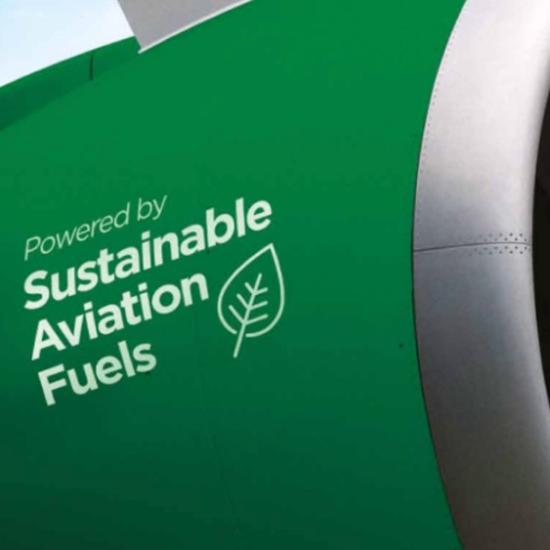Sustainability in air transport
Aviation Decarbonization
- Aviation industry: a difficult sector to decarbonize
- Impact on airports in terms of transition investment, demand change and fiscal policy
Airport Expansion Opposition
- Strong political and social opposition to airport expansion plans
Capital providers
- EIB will withdraw support for airport expansion projects
- Rise of ESG-linked bonds/loans to finance green transition
Extreme weather events
- Increased frequency of extreme weather events will impact infrastructure resilience
- Possible change in the geography of destinations

EU policy for green transition in aviation: Fit for 55
1. REFUEL EU AVIATION
IMPACT ON AIRPORTS
- Obligation for fuel suppliers until the end of 2029
- From 2030, airports will be the guarantors of compliance
- Airports will have to ensure necessary infrastructure to handle the new fuel
2. ALTERNATIVE FUELS INFRASTRUCTURE DIRECTIVE
Mandatory power supply to aircraft on standby at airports:
- From 1 January 2025 to aircraft parked at gates
- From 1 January 2030 to aircraft parked at all external locations
Member states will establish infrastructure deployment plans for hydrogen/electric-powered aircraft.
IMPACT ON AIRPORTS
- Until 2030, usability of any type of fixed or mobile interface, including diesel-powered units.
- From 2030, only fixed ground power supply or mobile electrically powered equipment possible.
3. ETS AVIATION REVIEW
- One-time emission cap reduction and higher annual reductions
- Phasing out of free emission allowances to carriers by end of 2026
- Continuation of EU ETS on intra-EU flights and application of CORSIA on extra-EU flights
- Establishment of a separate ETS for buildings (heating fuel) and road transport from 2025.
IMPACT ON AIRPORTS
- The general tightening of the emissions cap and the introduction of an ETS for buildings and road transport could lead to increased costs for airports.
4. ENERGY TAXATION DIRECTIVE
Phased introduction of taxation on jet fuel and electricity used for intra-EU flights (excluding cargo flights) over a 10-year period (2023-2033):
- The minimum applicable tariff after the transition period will be €10.75/GJ
- Alternative fuels (advanced biofuels, e-fuels) and electricity would have a minimum rate of zero for the transition period, after which 0.15 €/GJ
IMPACT ON AIRPORTS
- IATA estimates that the proposed level of taxation would result in a 90% increase in fuel prices for intra-EU flights by 2033).
